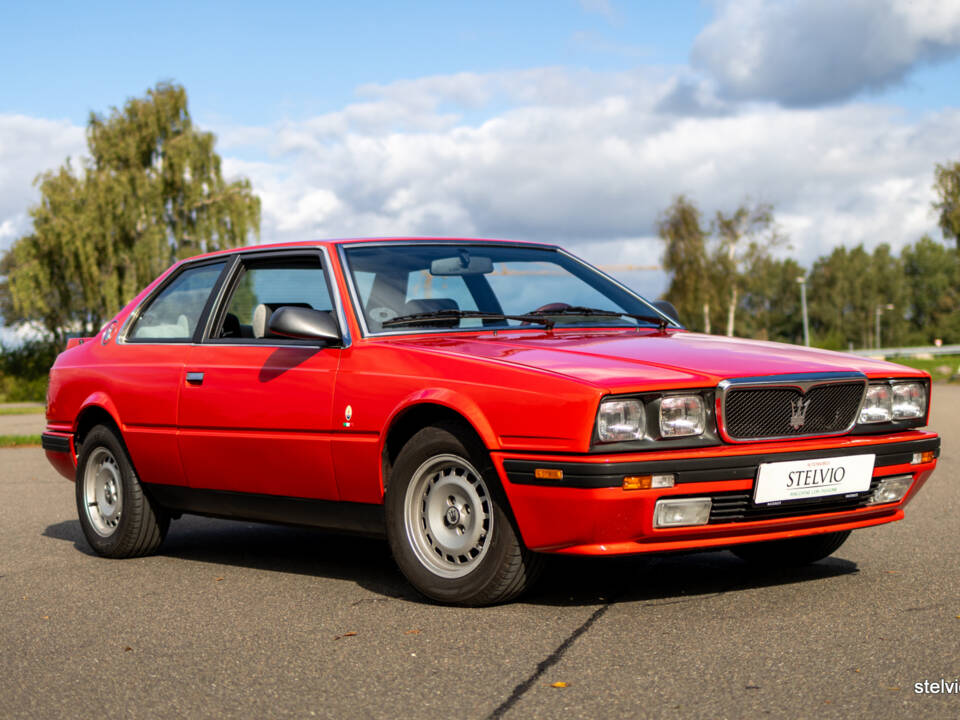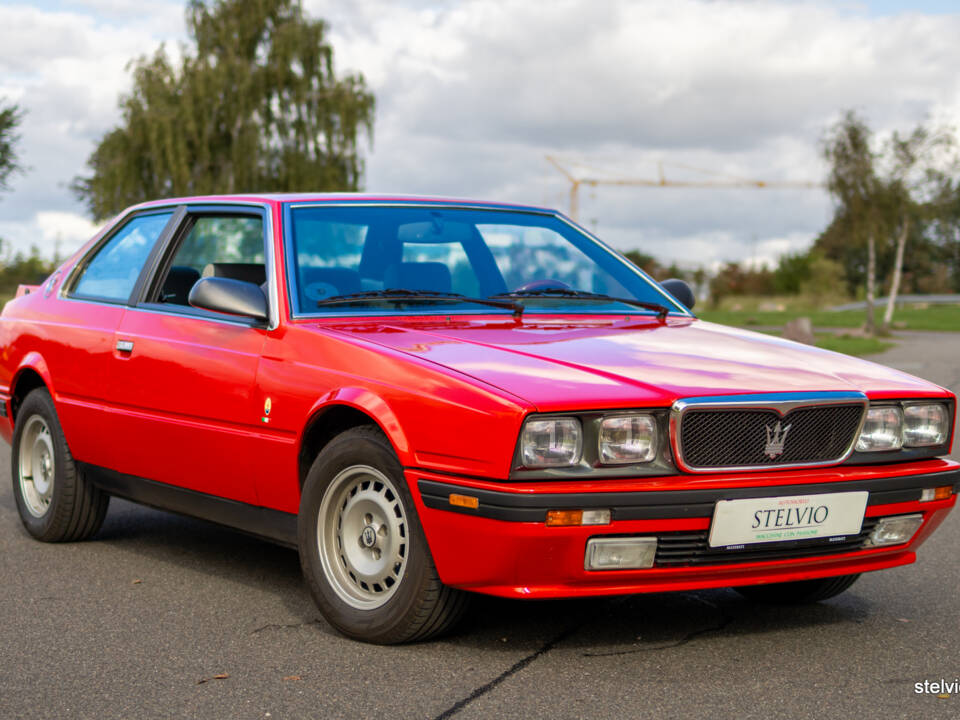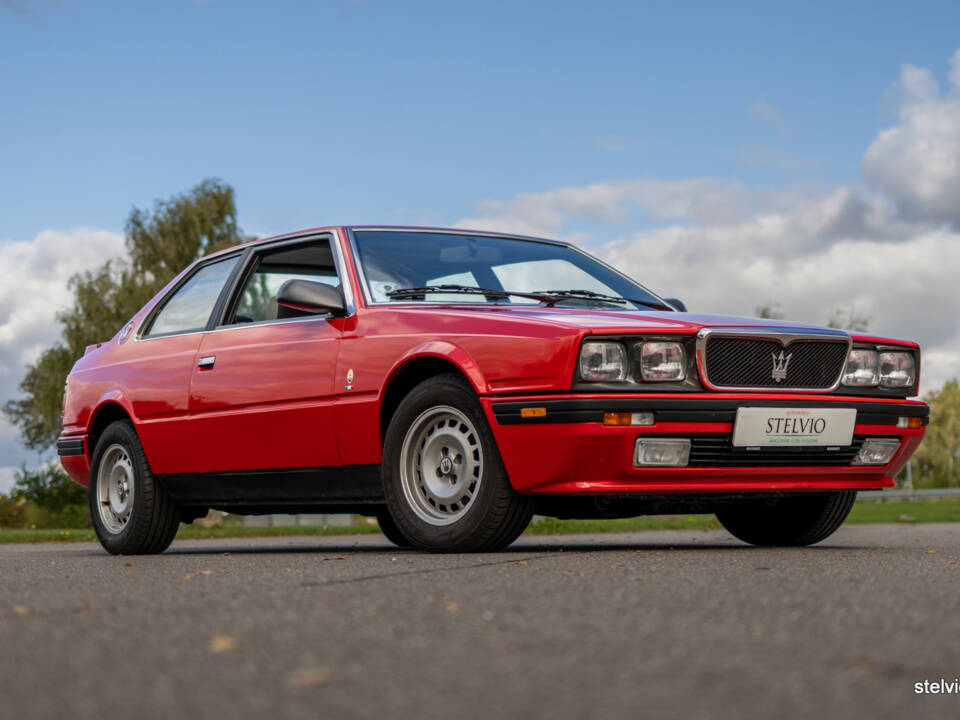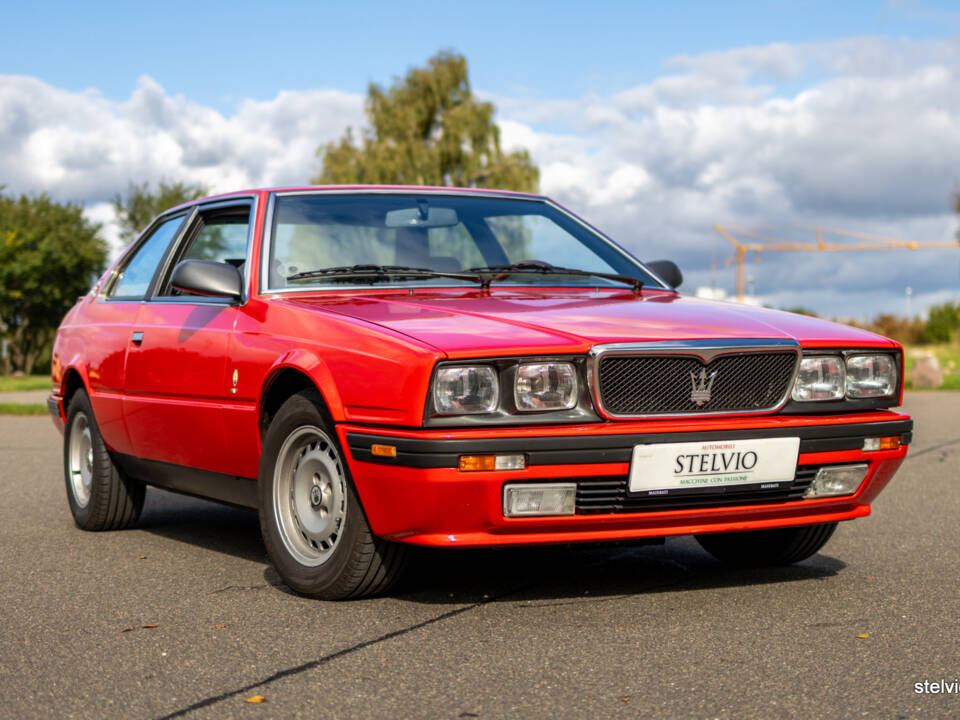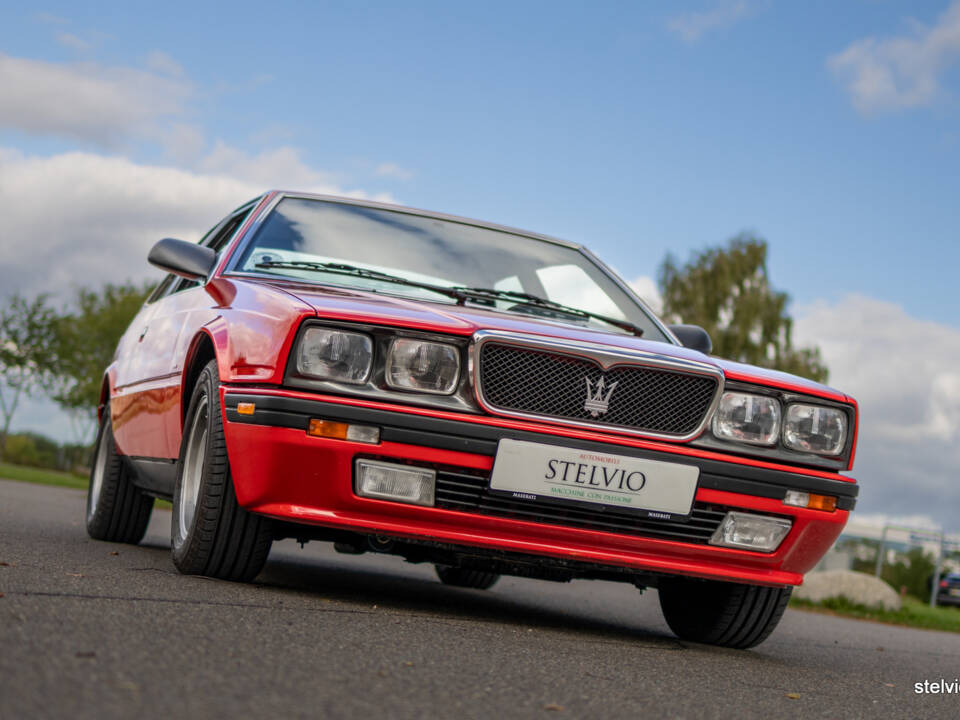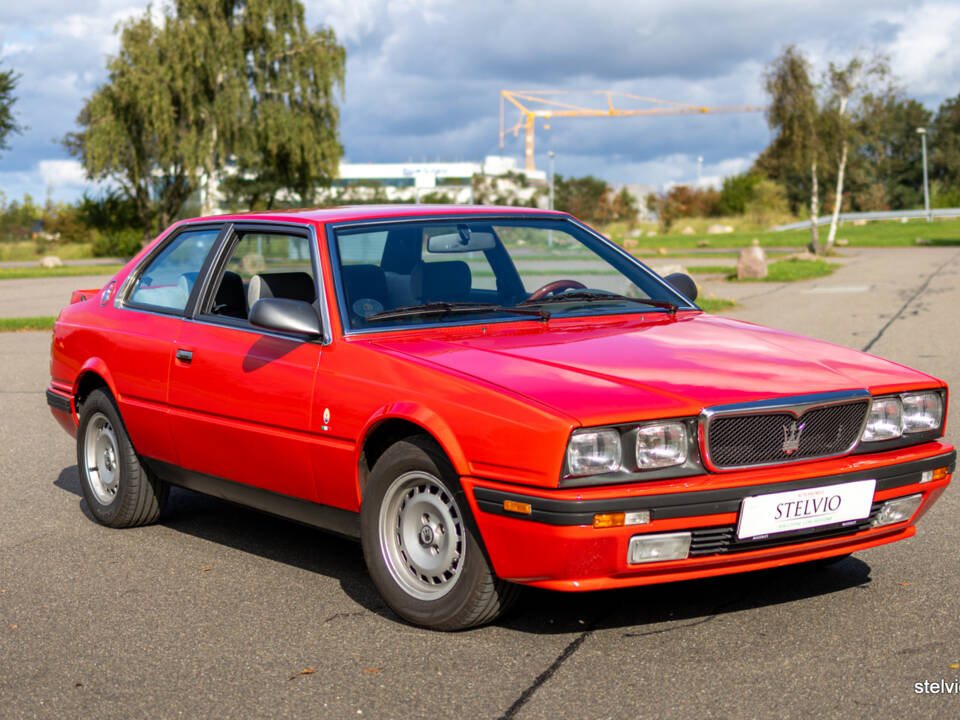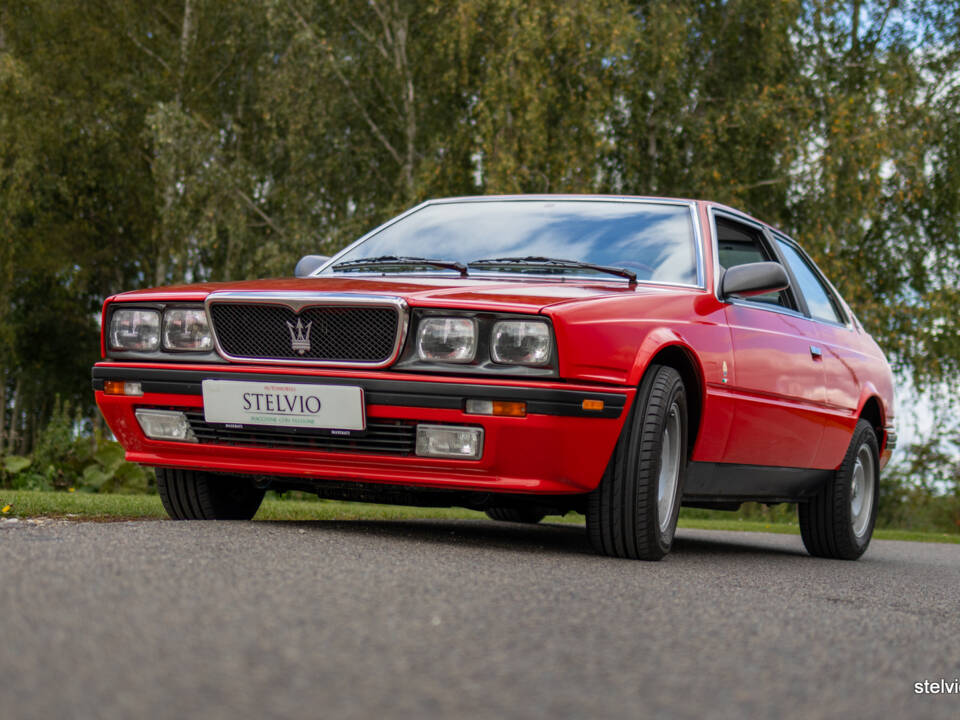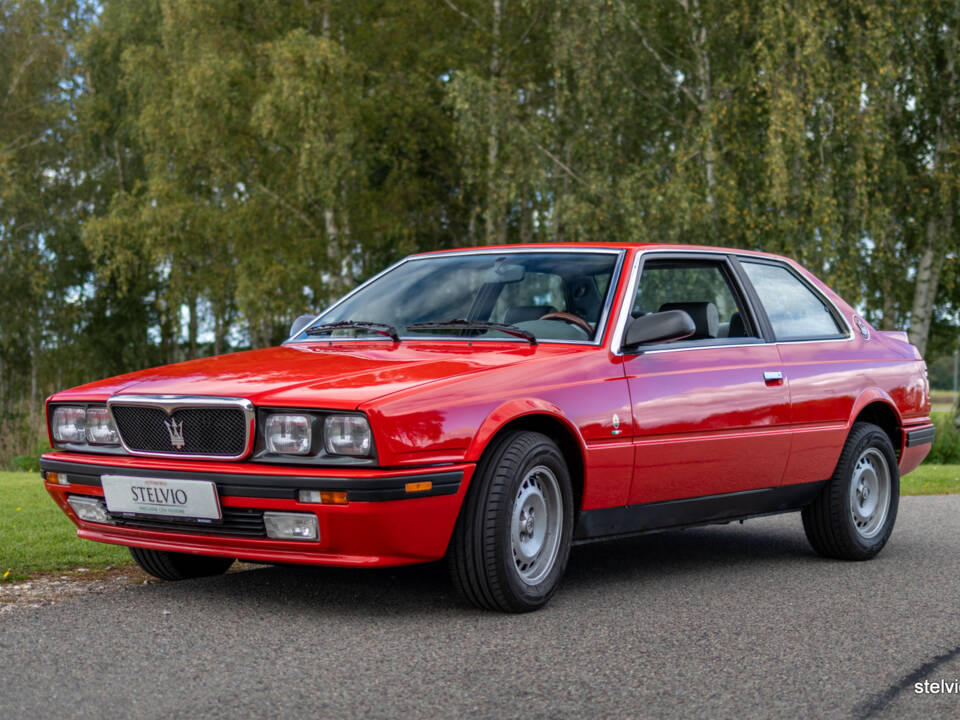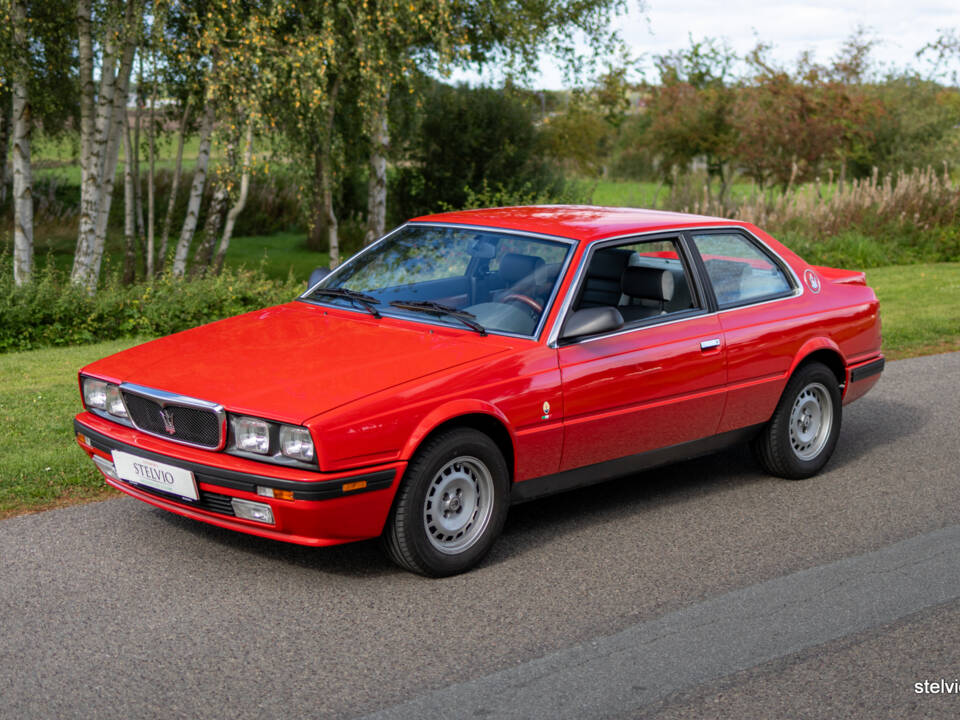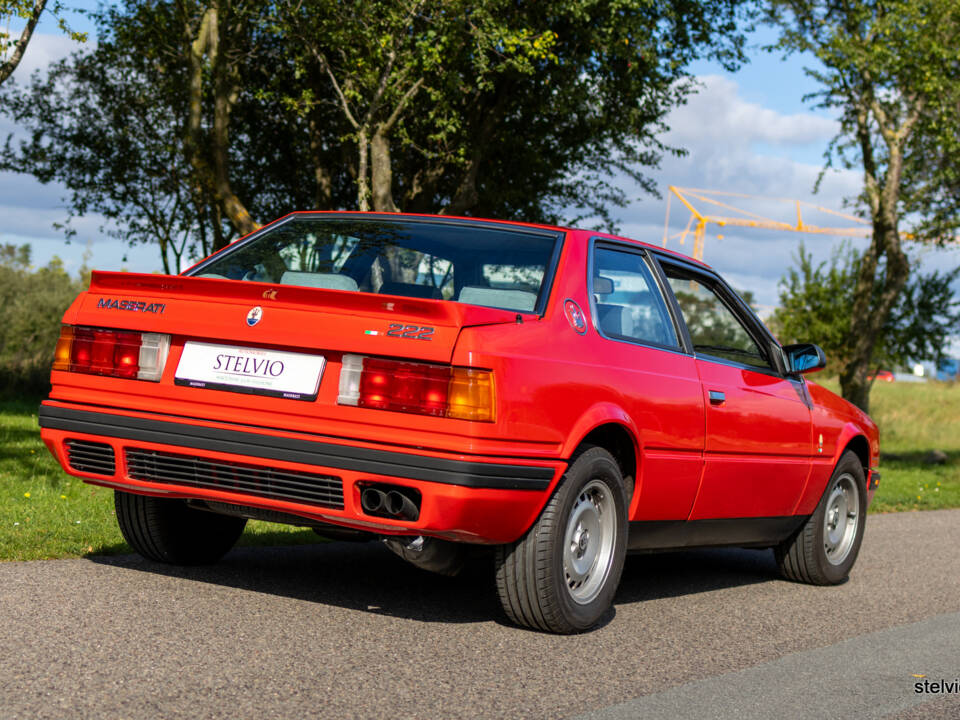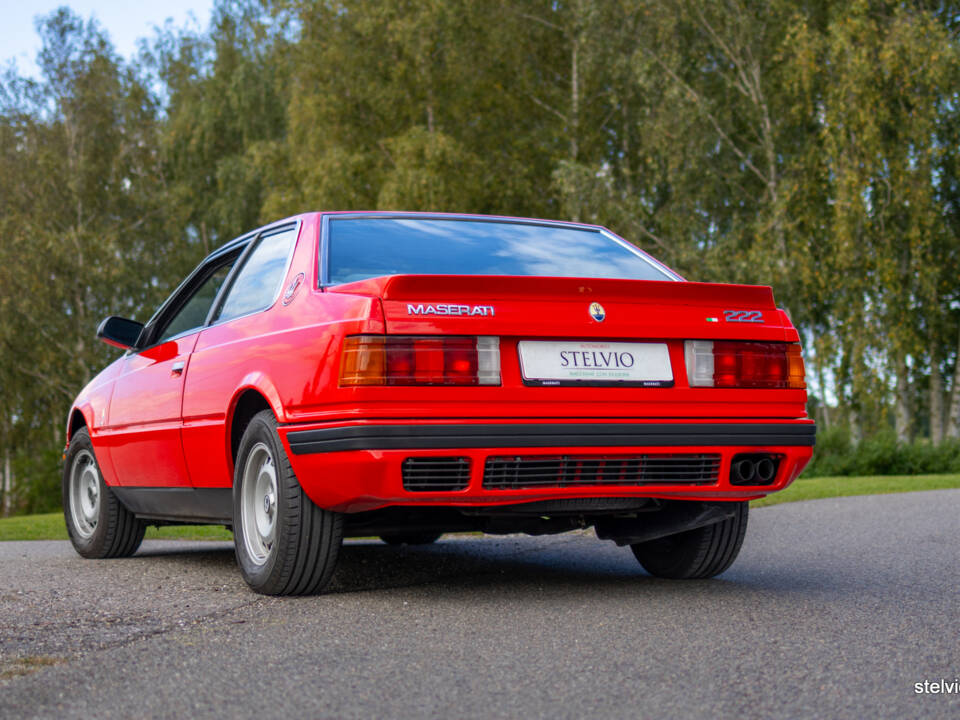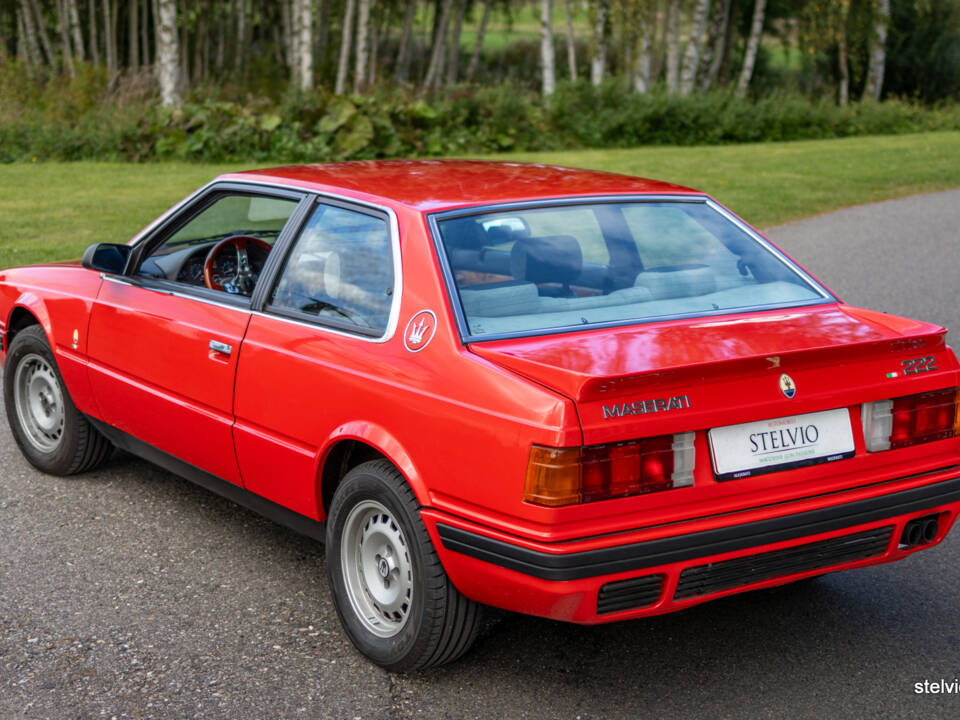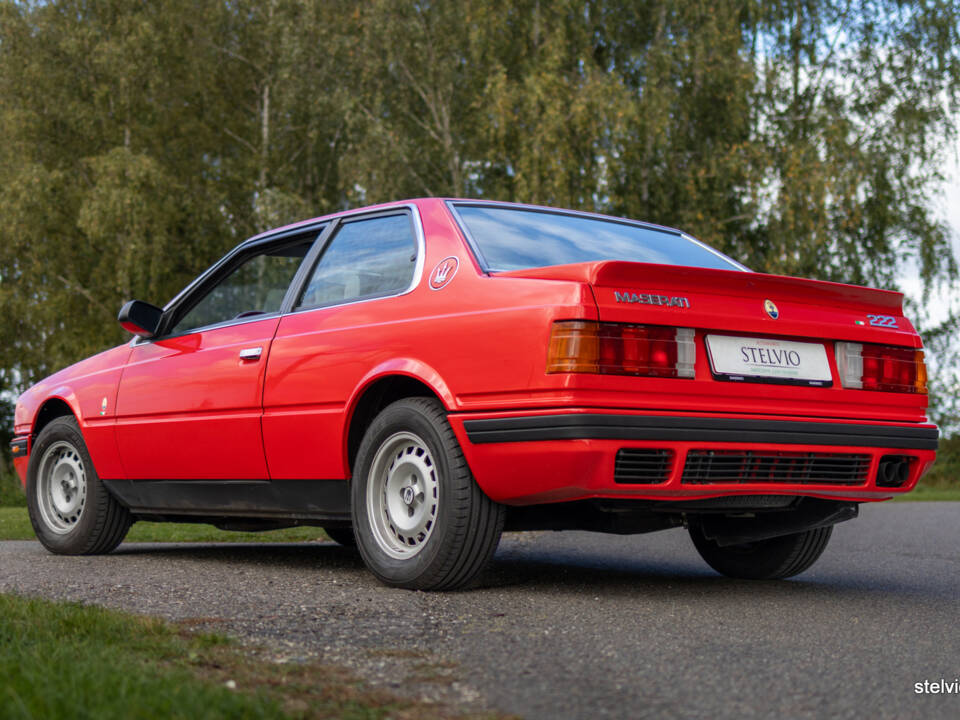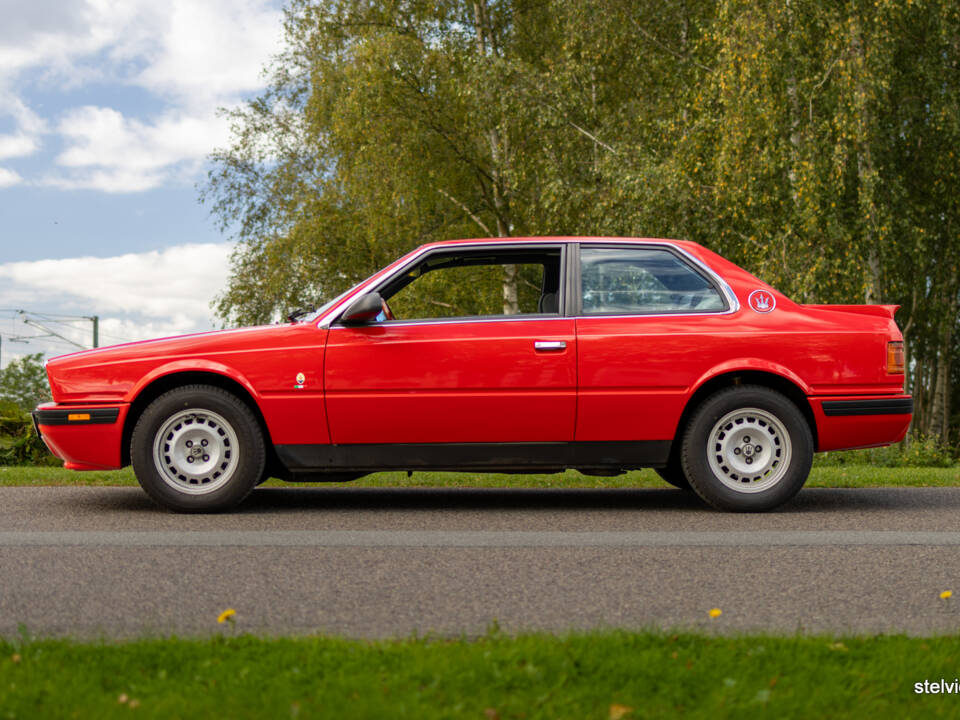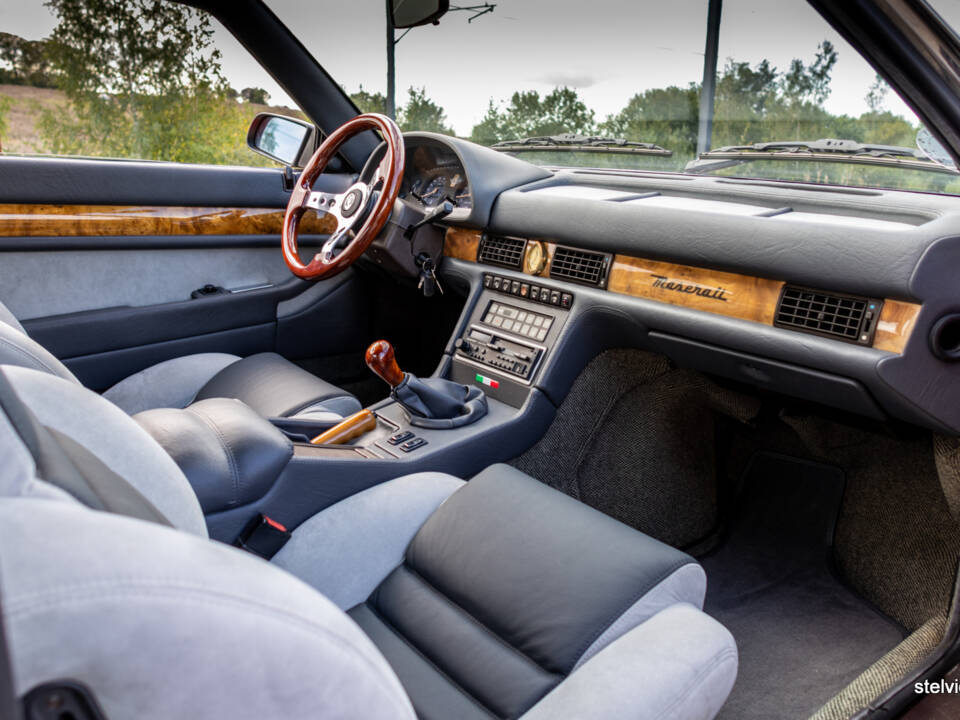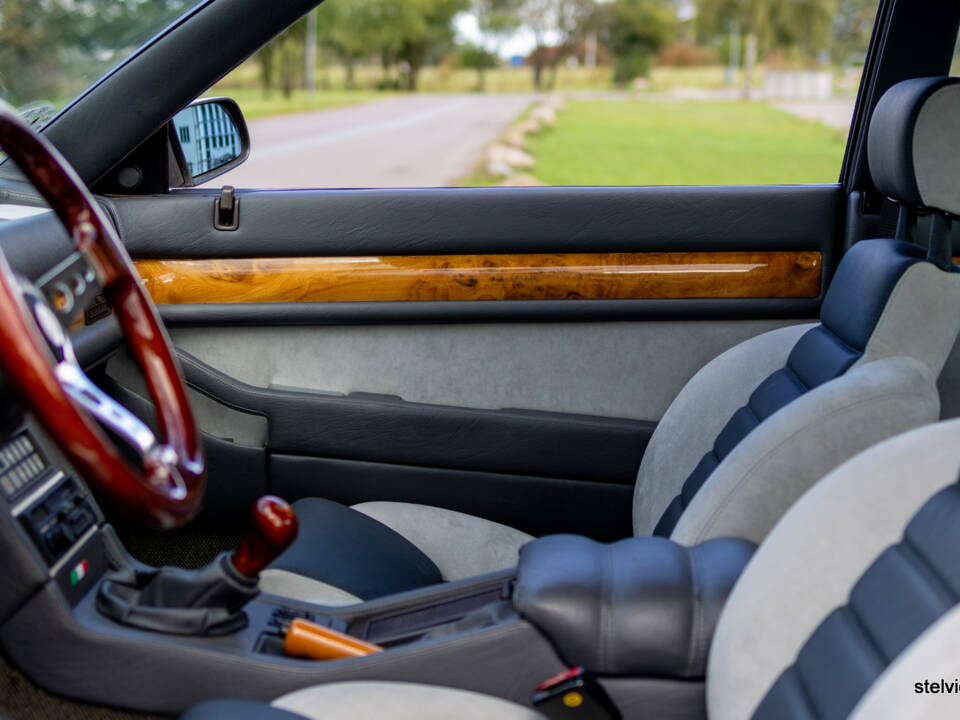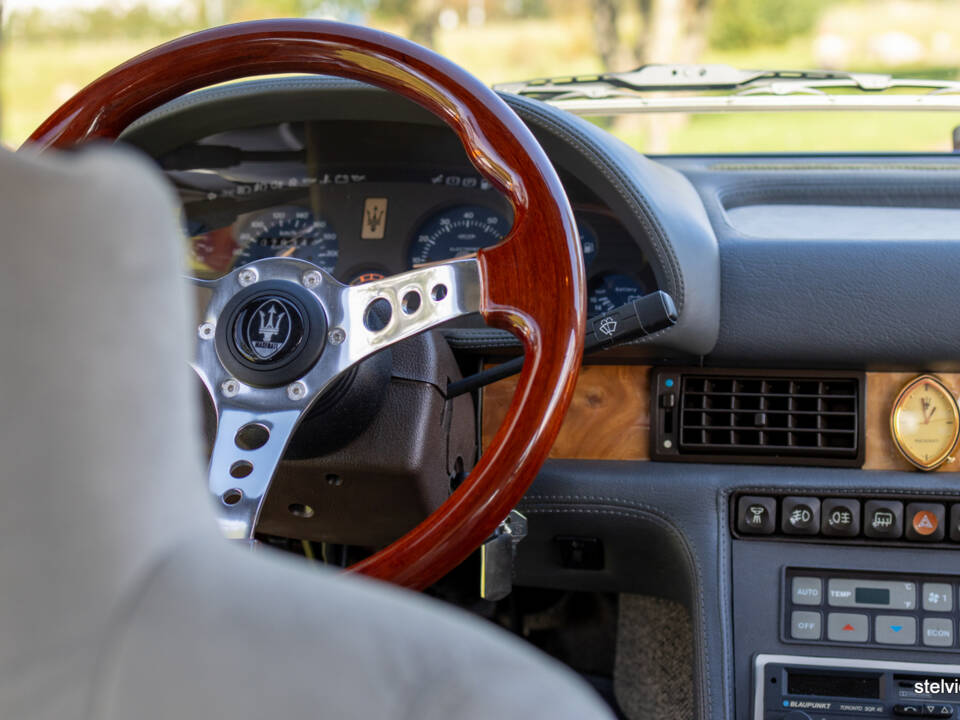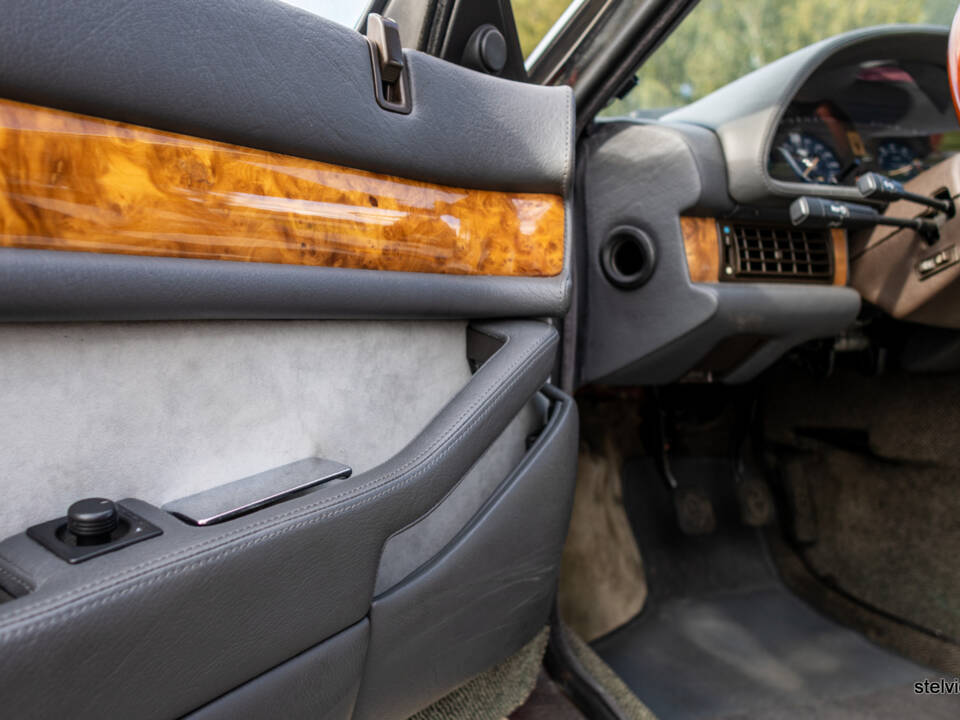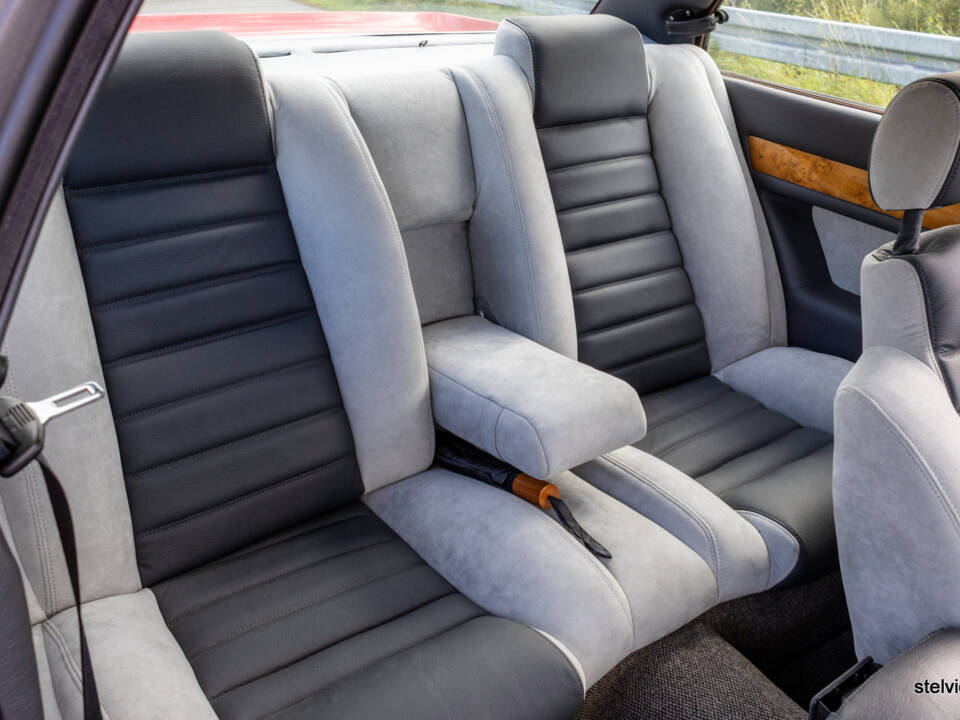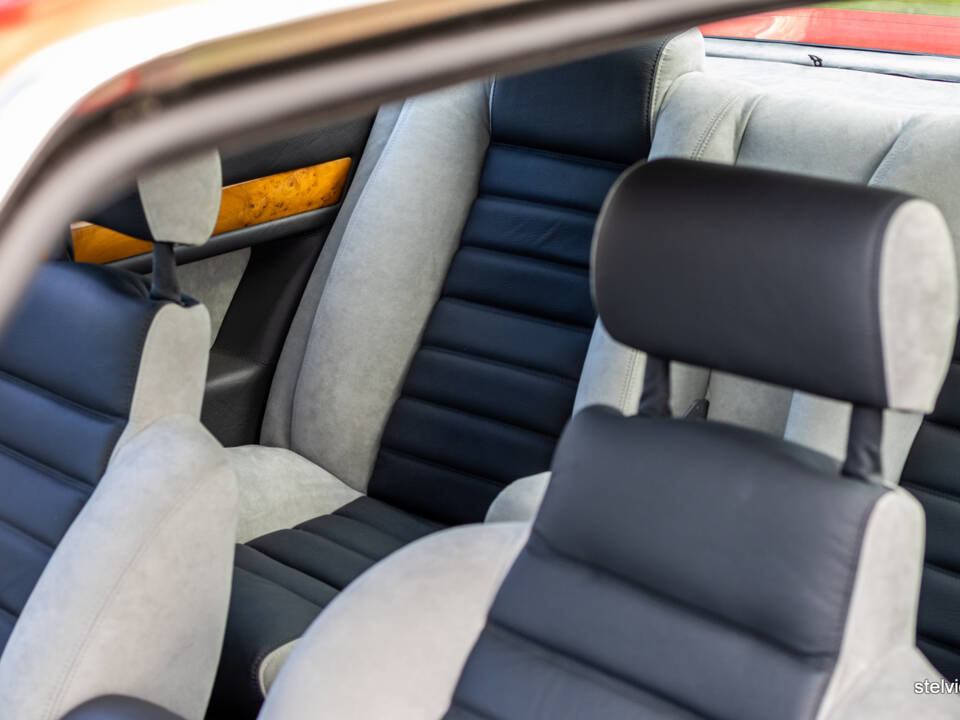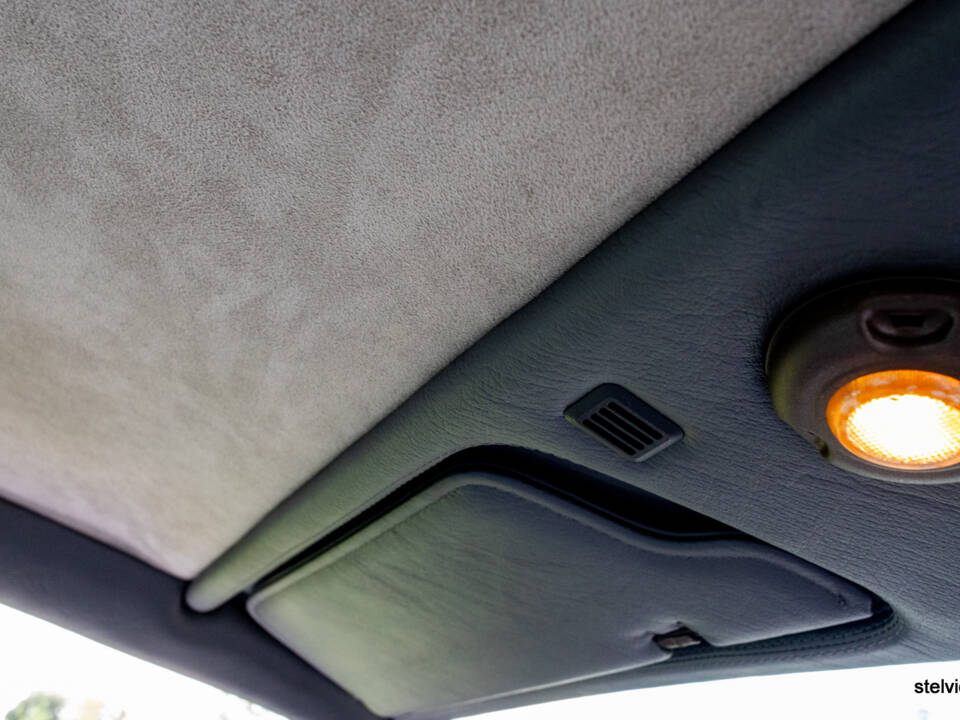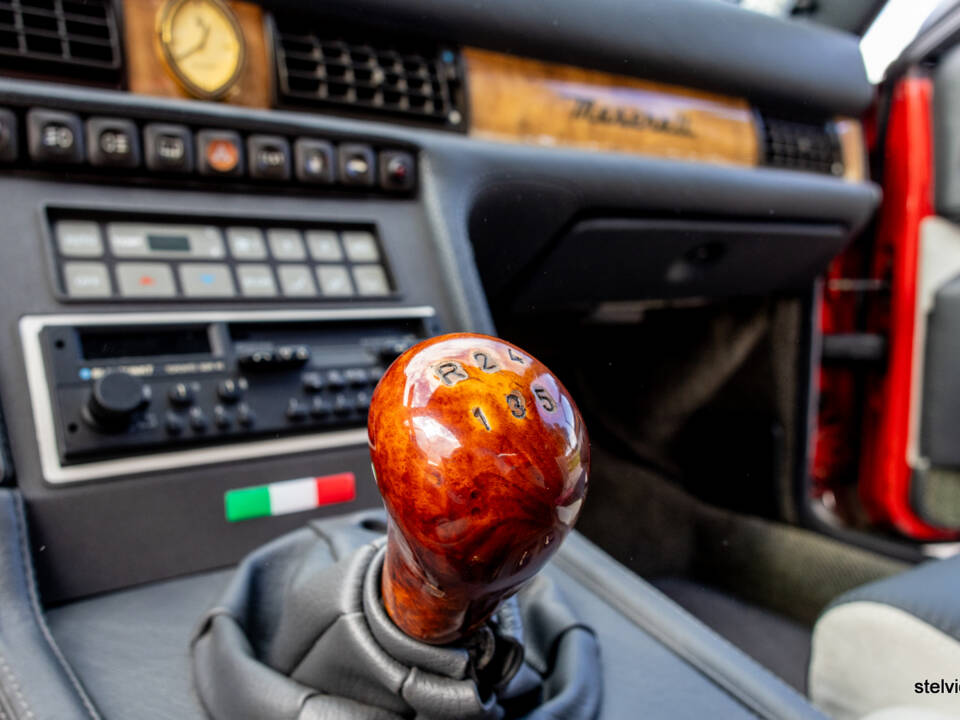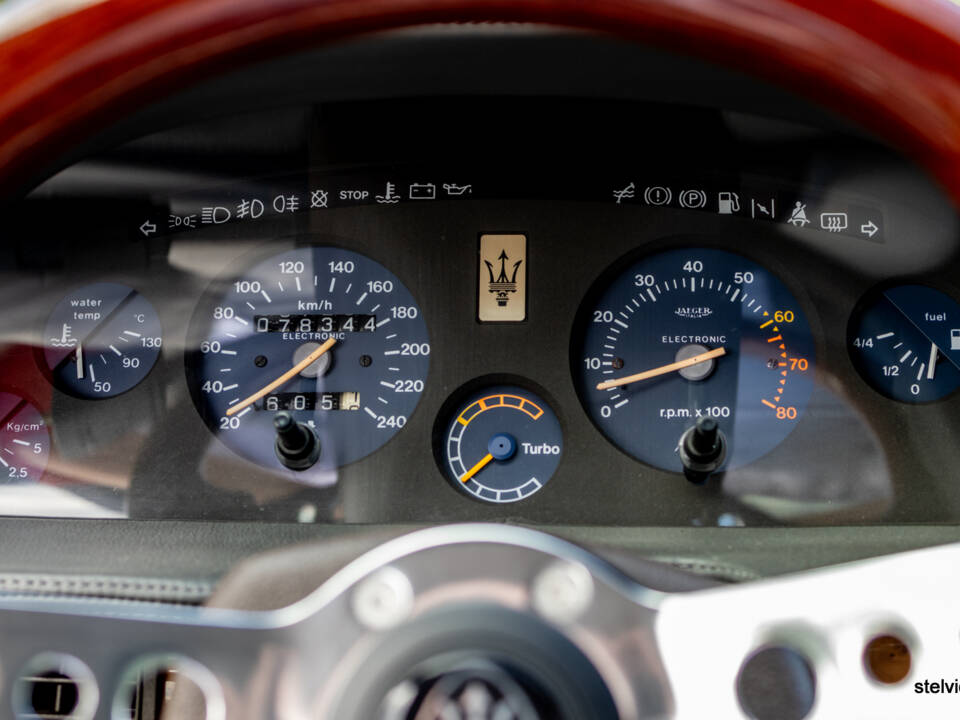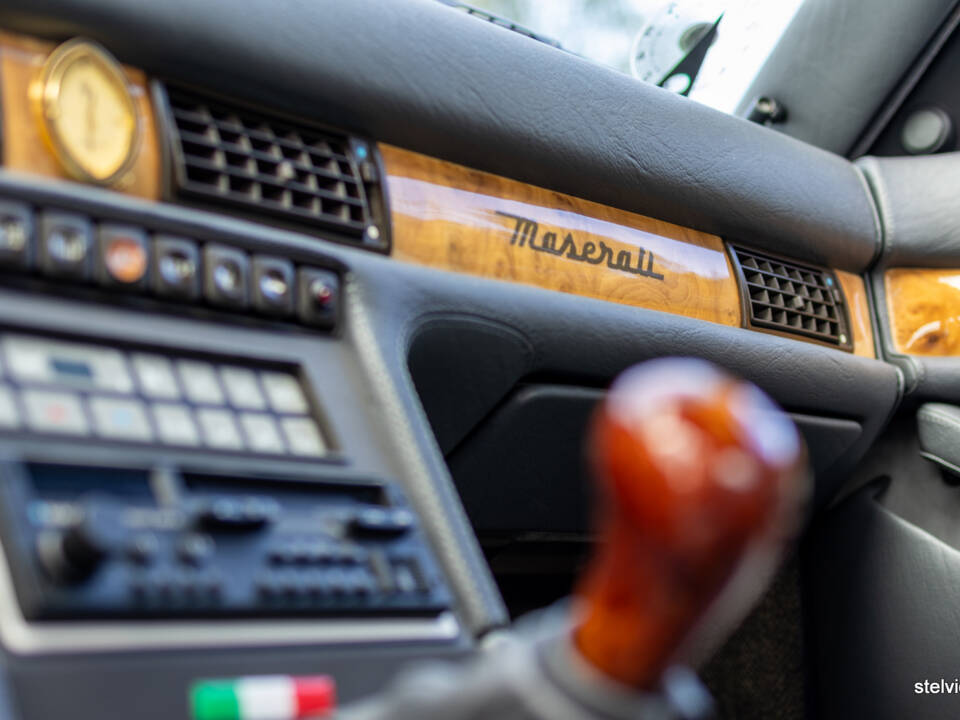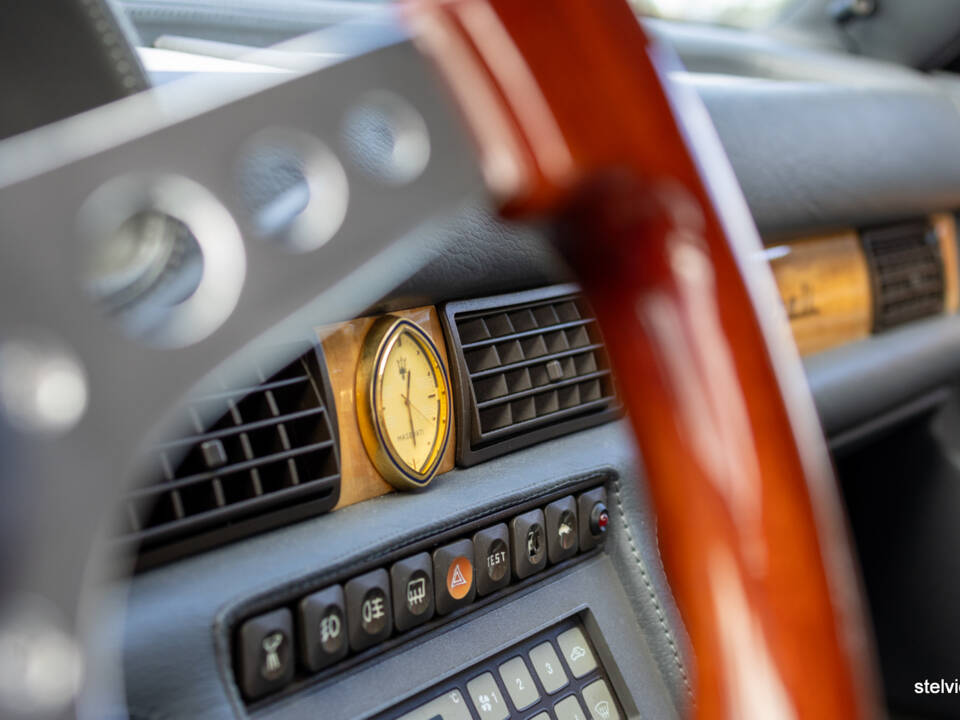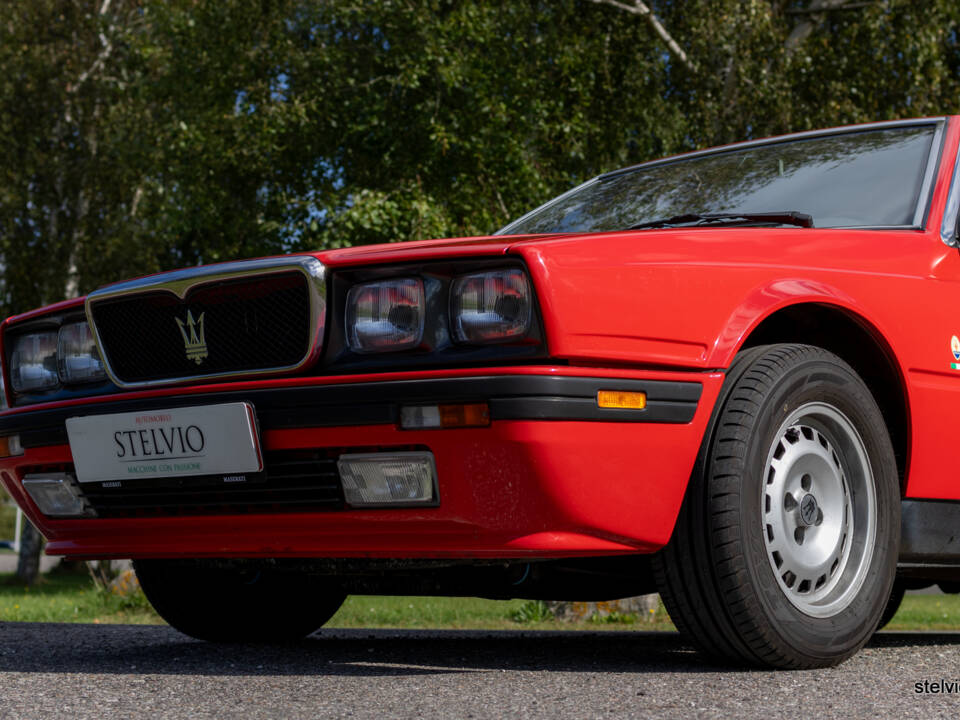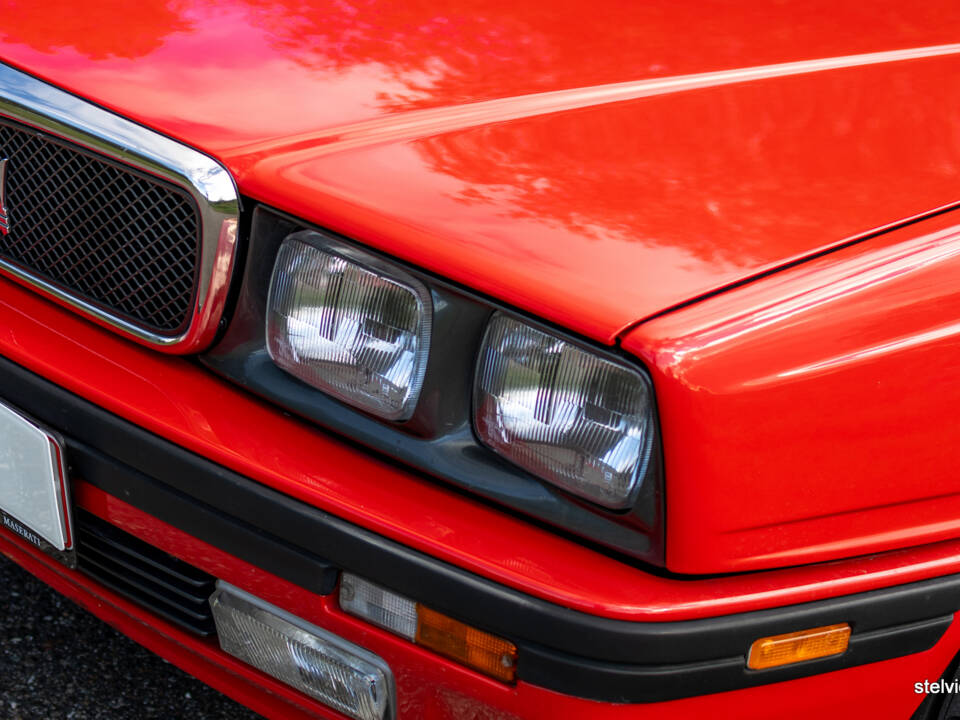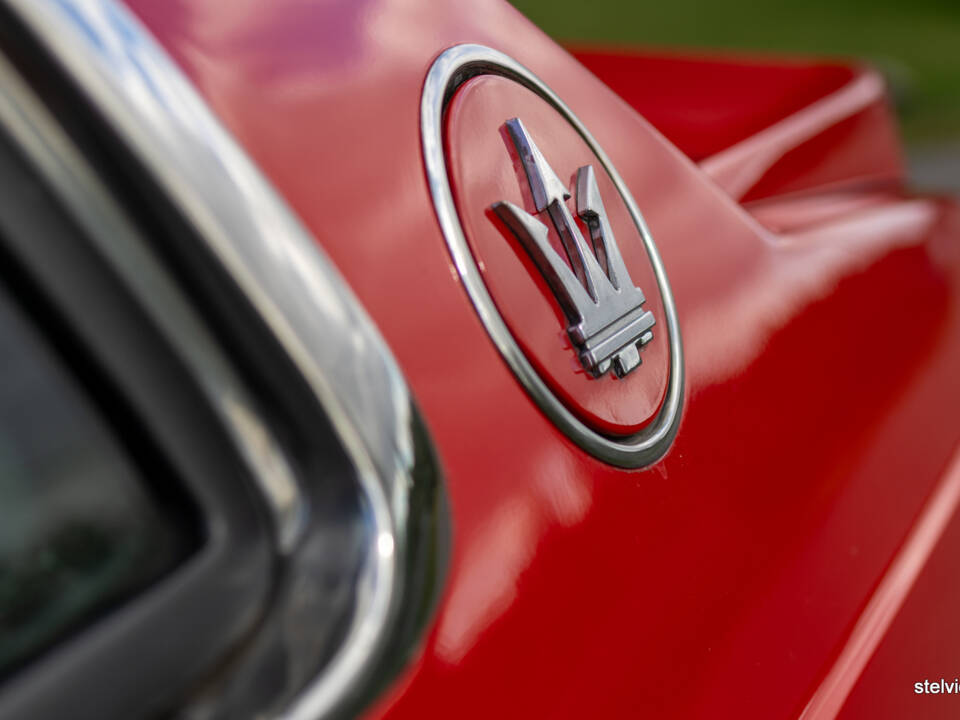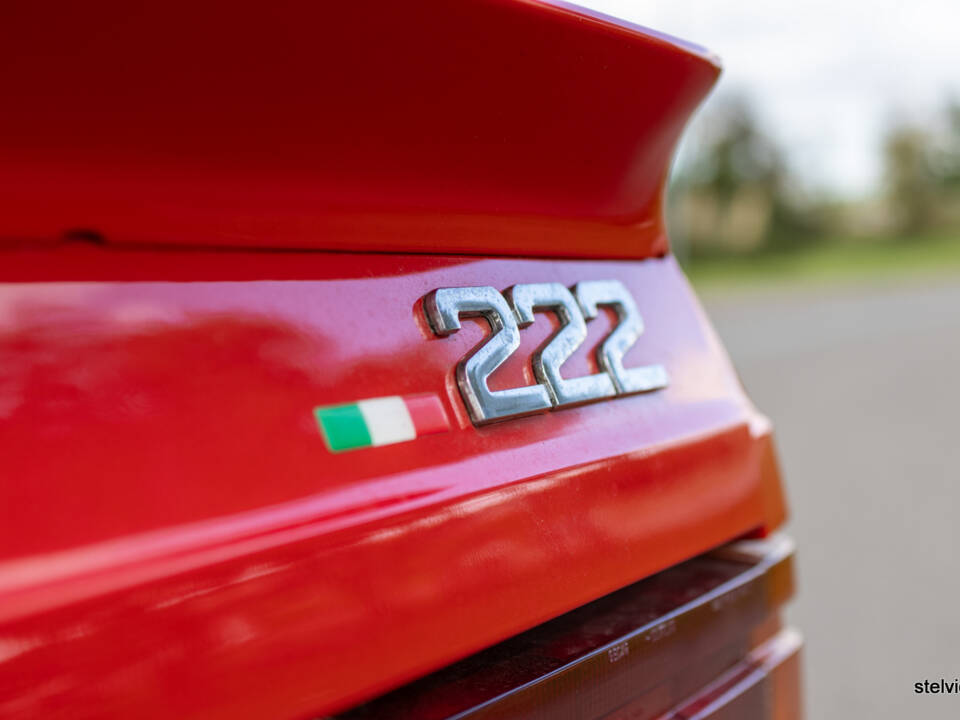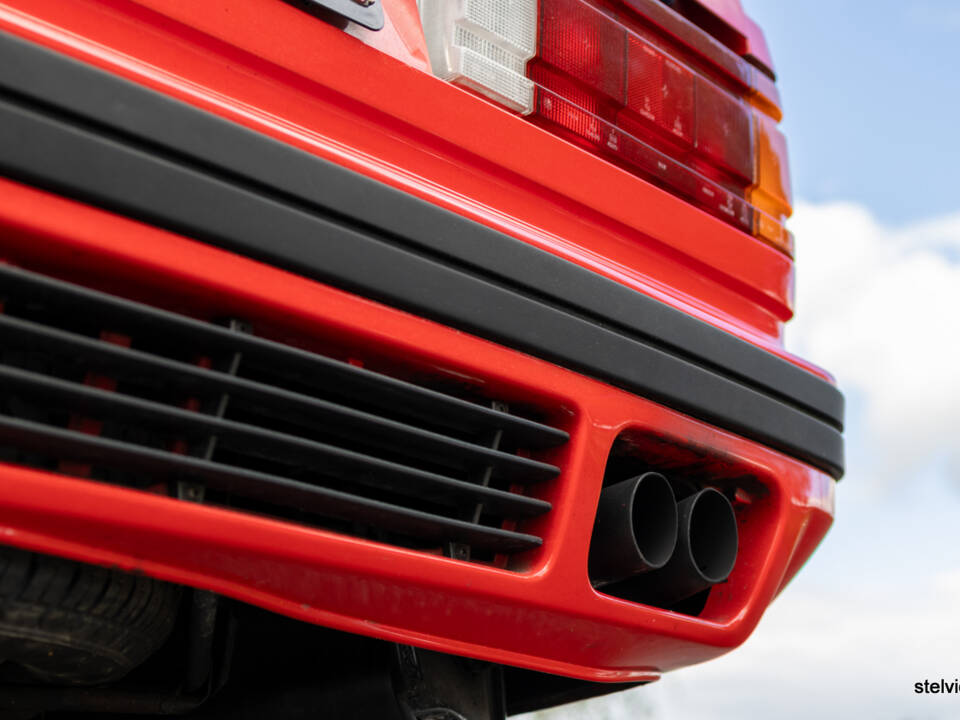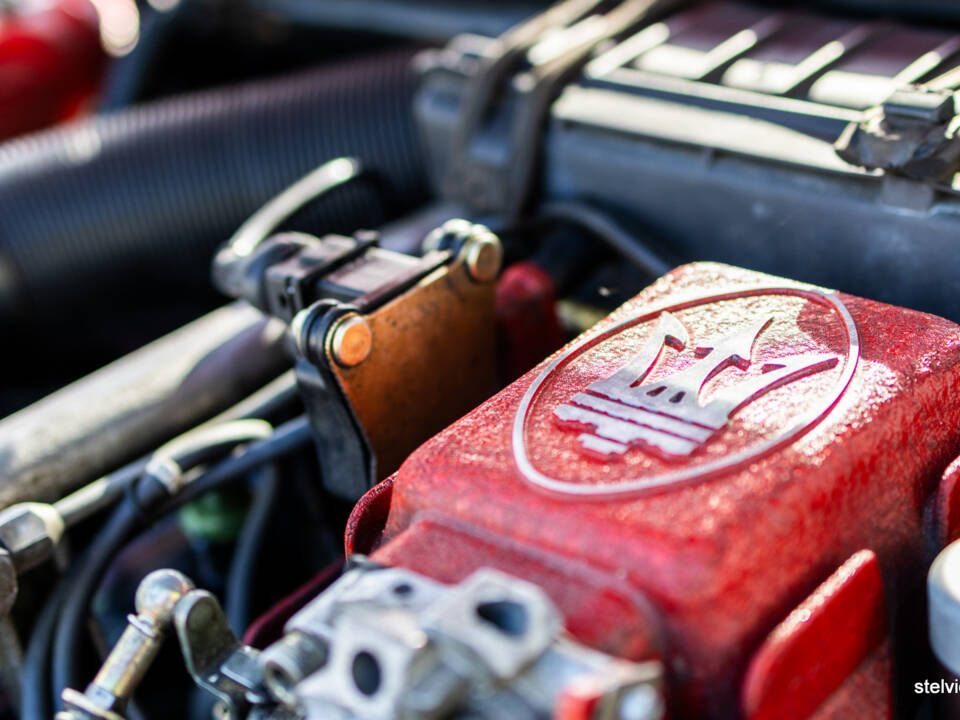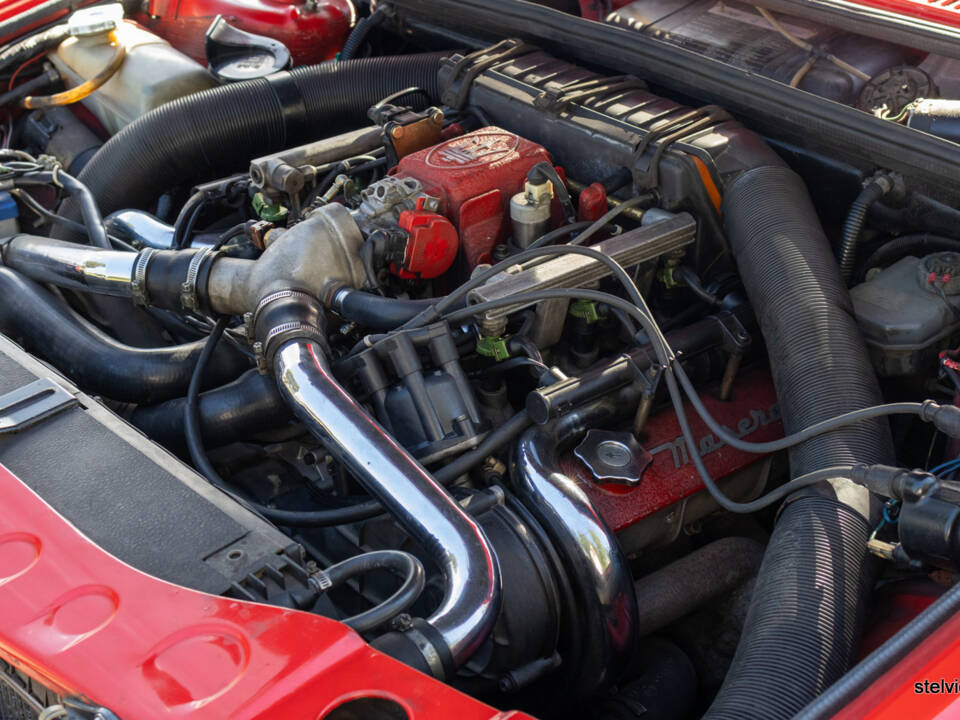1988 | Maserati 222
Stunning red 222, LHD and with new interior
Stunning red 222, LHD and with new interior
Stunning red 222, LHD and with new interior
Description
The Biturbo models ensured the survival of Maserati from the Gran Turismo models of the 70’ties to the ownership of Ferrari and the Maserati models we know today. With a mixed reputation (sometimes deserved, sometimes not) but always compact and well driving. Often the issues were electrical because of bad connections, whereas the mechanical quality actually was quite good. Maserati has always produced great engines based on motorsport, and the transmission of the Biturbo is made by German manufacturer ZF and rock solid.
One turbocharger on each cylinder row is the recipe for probably the most efficient way to design an engine. The exhaust pulses from 3 cylinders are optimal for a turbocharger, which is why for many years this configuration was dominant in motorsport including Formula One.
The early Maserati Biturbo with carburetors were known for their temperament and notoriously difficult to start when warm. However, the later models with fuel injection like this 222 from 1988, were much easier to live with even though the characteristic of old school turbo charging providing a significant boost just before 4000 rpm certainly is there. The famous “ketchup effect” resulting from this is quite entertaining. The output of this engine is 220 bhp – it could be increased up to 330 bhp and even more for racing purposes.
This 222 (2 doors, 2 liter engine, 2nd generation) is originally a Danish car. The car has been very well maintained and has just received major service including new Koni dampers and tires. On the road it drives excellent. It was repainted in its original color some years ago and still presents spotless. The output of 220bhp ensures quite respectable performance from the compact car, which is actually shorter than a BMW 3 Series from the same period. The comparison with BMW is not a coincidence as Maserati used various BMW parts in their car. The cabin has just been redone in a quality superior to the standard of Maserati and now includes real leather and Alcantara to please the lucky owner. Even the roof lining is now made from Alcantara and the dash board – which normally becomes quite tatty throughout the years – is now in excellent shape as well. Enjoy the pictures of the cabin, we think it is very nice and it was quite expensive to do by the way. And just to top it up, a periodic correct Blaupunkt Toronto was installed, in case the driver should be tired of listening to the glorious sound from the roaring V6. Please note, that the mileage is just 78,000 km.
Détails du véhicule
Données du véhicule
- Marque
- Maserati
- Série de modèles
- Biturbo
- Modèle
- 222
- Date immatriculation
- Non fourni
- Année
- 1988
- Kilométrage (compteur)
- 78 000 km
- Numéro d'identification du véhicule
- Non fourni
- Numéro de moteur
- Non fourni
- Numéro de Transmission
- Non fourni
- Numéros correspondants
- Non
- Nombre de propriétaires
- Non fourni
Détails techniques
- Type de carrosserie
- Coupé
- Puissance (kW/CV)
- 165/225
- Cylindrée (cm³)
- 1996
- Cylindres
- 6
- Portes
- 2
- Volant
- Gauche
- Boîte de vitesse
- Boîte manuelle
- Vitesses
- Non fourni
- Traction
- Arrière
- Frein avant
- Non fourni
- Frein arrière
- Non fourni
- Carburant
- Essence
Configuration individuelle
- Couleur extérieure
- Rouge
- Couleur intérieure
- Gris
- Matériel intérieur
- Cuir
État, immatriculation, documentation
- Expertise disponible
- Immatriculé
- Prêt à conduire
Fournisseur
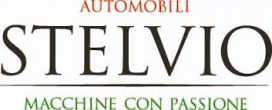
Stelvio Automobili
Stelvio Automobili Aps
Måløv Værkstedsby 93
2760 Måløv
🇩🇰 Danemark
